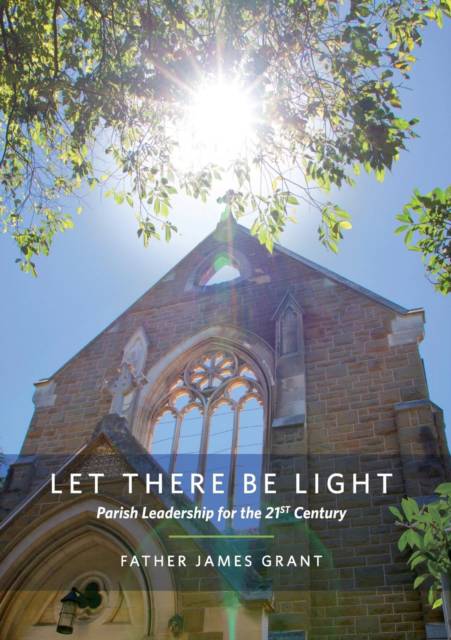
- Retrait gratuit dans votre magasin Club
- 7.000.000 titres dans notre catalogue
- Payer en toute sécurité
- Toujours un magasin près de chez vous
- Retrait gratuit dans votre magasin Club
- 7.000.0000 titres dans notre catalogue
- Payer en toute sécurité
- Toujours un magasin près de chez vous
36,95 €
+ 73 points
Description
Drawing on his extensive overseas and Australian experience of parish life, Fr James Grant shows that, despite rising secularism and religious apathy in the West, there is no need for priests and parishioners to accept an inevitable decline in parish life and activity. His key insight is that churches have to move with the time while staying true to their core beliefs. This does not mean reading the zeitgeist of passing fashions or pursuing political causes from the pulpit. Many traditional faith brands such as Methodism and Presbyterianism have virtually disappeared, while erstwhile pillars of yesteryear, such as the Anglican Church, are rapidly withering on the vine. By trying to blend political causes with religious beliefs they have only succeeded in confusing their lifetime supporters, while failing to persuade activists to come on board. Activists may be passionate about their pet causes, but they don't need to do so within a church framework. The Catholic Church has over a billion adherents worldwide and is still expanding in many countries - not because it bends with the political wind but because it stays true to its long held beliefs. Even those who don't strictly follow its teachings on such subjects as contraception and divorce can still admire its consistency of purpose and high principles. After all, its basic message of primacy for the poor and disadvantaged is a timeless and peerless one, which first captured hearts and minds nearly two thousand years ago. The bulwark of modern society has always been the family and family values, but what has previously been taken for granted is now under vigorous assault. Marriage is becoming an optional extra for many, while its definition is undergoing profound re-thinking. But a multitude of studies have shown that those who have settled family lives are much more likely to achieve both material and spiritual prosperity, as well as a greater degree of happiness and life satisfaction. Father Grant gives many practical examples of what a forward thinking but traditional values based programme can achieve. Those who already attend church are almost, by definition, amenable to an offer of further spiritual uplift and would be willing to contribute to community and parish life in various ways, if they can see an active agenda. Those who have turned away or are still looking for something to fill the spiritual hunger gap would be attracted by a parish priest and council which is keen to engage them on issues of mutual concern, whether pastoral or charitable. Care and compassion and concern for the poor should be core business for churches. So a programme which marries the traditional values and teaching of the gospel with the busy lives of ordinary people should have widespread appeal. Fr Grant shows that this can, indeed must, be done if the Catholic Church is to remain vibrant and relevant to the lives of ordinary Australians.
Spécifications
Parties prenantes
- Auteur(s) :
- Editeur:
Contenu
- Nombre de pages :
- 148
- Langue:
- Anglais
Caractéristiques
- EAN:
- 9781925138993
- Date de parution :
- 01-03-16
- Format:
- Livre broché
- Format numérique:
- Trade paperback (VS)
- Dimensions :
- 148 mm x 210 mm
- Poids :
- 199 g

Les avis
Nous publions uniquement les avis qui respectent les conditions requises. Consultez nos conditions pour les avis.






